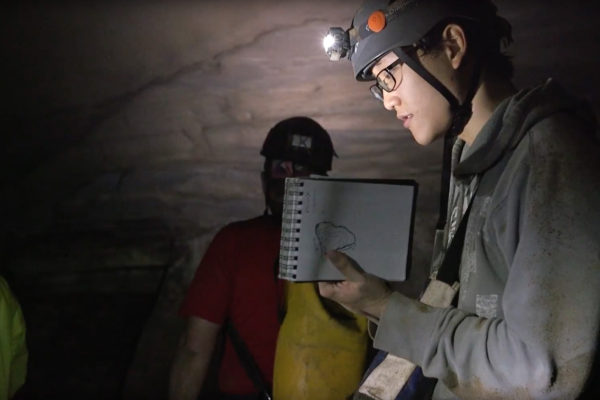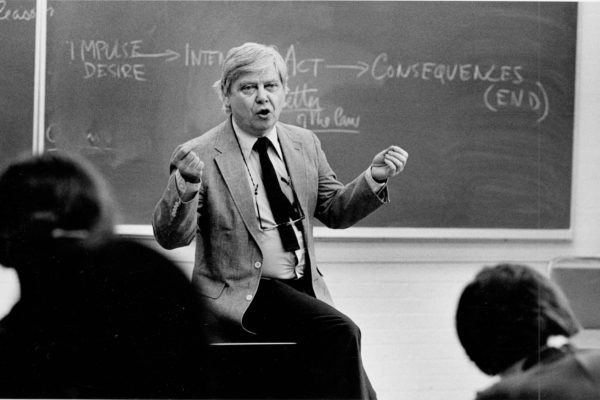University faculty among Chouteau Greenway finalists
Four faculty members from the Sam Fox School of Design & Visual Arts are among the finalists in the international Chouteau Greenway Design Competition, which aims to connect dozens of cultural and educational institutions from Forest Park to the Arch. Washington University is a partner in the greenway project.
Caves, architecture & ‘Disappearing Ground’
Where do nature and design meet? And how does one create space within evolving nature? This fall, students in the Sam Fox School of Design & Visual Arts explored those questions as part of “Disappearing Ground,” a speculative studio centering on Fogelpole Cave in Illinois.
New book by Griffith tackles timely subject
In her new book, “Moral Combat: How Sex Divided American Christians and Fractured American Politics” (Basic Books, 2017), Washington University’s R. Marie Griffith offers a compelling history of the religious debates over sex and sexuality that came to dominate American public life.
Lester honored for best paper in psychological anthropology
Rebecca Lester, associate professor of sociocultural anthropology in Arts & Sciences, has been awarded the 2017 Stirling Prize for the Best Publication in Psychological Anthropology.
Student’s pumpkin-white chocolate cookie wins contest
Washington University in St. Louis senior Cole Warner makes a killer cookie. Warner’s recipe for pumpkin-white chocolate chip snickerdoodles bested about 80 recipes to win the Judges’ Pick award for the annual St. Louis Post-Dispatch Cookie Contest.
Obituary: William H. Gass, professor emeritus, 93
World-renowned author and literary critic William H. Gass, the David May Distinguished University Professor Emeritus in the Humanities at Washington University in St. Louis, died Wednesday, Dec. 6, 2017, at his home in University City, Mo. He was 93.
Enacting Caravaggio
“The Calling of St. Matthew” is a masterpiece of light and shadow. For the seminar “Caravaggio: Master and Murderer,” art historian William Wallace enlisted students and colleagues from the Performing Arts Department in Arts & Sciences to explore the painting’s mysteries.
Three questions with Dean Barbara Schaal on why science matters
As past president of the American Association for the Advancement of Science, the world’s largest general scientific society, Schaal often advocates for scientific funding. Here, she explains why science is a good investment.
Quoted: Hold That Thought
These quotes are from Hold That Thought, a podcast produced by Arts & Sciences, where in 15 minutes you can learn about the allure of Shakespeare, the most attractive personality traits or the secrets stored in rocks.
The game of life
When Sam Coster, AB ’12, was diagnosed with stage 4 cancer at age 23, he knew his life had to change. A game developer who made irreverent endless runners for mobile, Coster and his brothers, who run the game development studio Butterscotch Shenanigans, decided to create their most imaginative and ambitious game to date, Crashlands.
View More Stories









